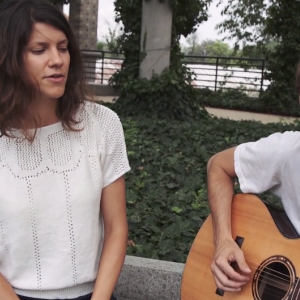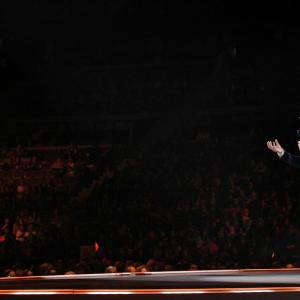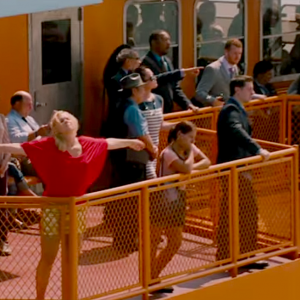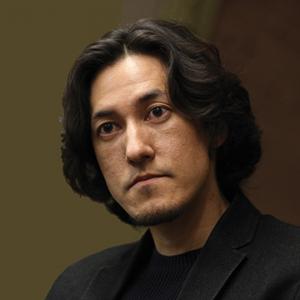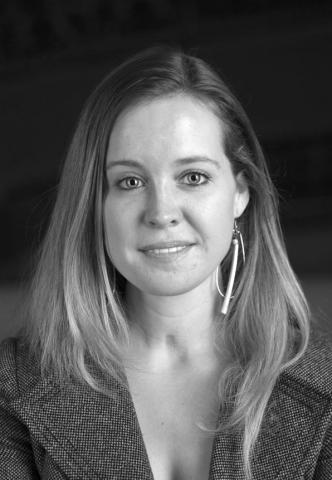
I'm deputy web editor for Sojourners, where I report on culture, tech, and religion, and look for voices to contribute to conversations on faith, spirituality, justice, innovation, and daily life. A collection of my reporting on sexual abuse and Christian communities, "I Believe You: Sexual Violence and the Church," was published in 2014 (avail on Amazon).
Beyond the religion beat, I also write on business, tech, community innovation, nostalgia, loss, collective memory, and war, with work appearing in the Atlantic, Pacific Standard, the Washington Post, Think Progress, and Books & Culture. In 2014, I spoke on collaborative solutions and "Do It Together" design models at SXSW in Austin, Texas.
My favorite postures are ethnographer and producer — reporting on the spread of subcultures, ideas, objects, and beliefs through time and place; and creating the conditions for others' voices and talents to thrive.
My nonofficial, not-so-subtle goal is to keep D.C. weird. Hold me to it.
Posts By This Author
When Community Requires Boundaries, Who Gets Left Out?
Why Mennonites in Nairobi Are Building Luxury Condominiums
The work of transformation — of land, or of legacy — is never complete. And for Western Christians, inheritors of a religion built and carried by ethnocentrism and economic exploitation, the work to detangle faith from the structures that continue to support it is an extra challenge. When survival of the church demands profit, what do you monetize? When community requires boundaries, whom do you leave out?
How Sci-Fi and Fantasy Help Us Understand the Divine

Image via agsandrew/Shutterstock.com
As a lifelong reader of fantasy and science fiction, my favorite stories were those set not only in a different time but a different world altogether. It’s exciting to enter into a wholly new landscape, and, as avid readers of both genres will say, there’s both power and joy in watching people and creatures do battle with the same forces we recognize in our daily lives (including, possibly, the power to overcome real-world social divisions — despite decades of the science v. religion binary, there’s ample evidence that both sides love hobbits).
The New Spirituality: Horizontal, Incarnate, Communal
An Interview With 'Grounded' Author Diana Butler Bass

Image via Mopic/Shutterstock.com
Let it be noted: Diana Butler Bass is not worried about the kids.
The passage of time is ever-present in our conversation, and we linger often on the uncertainty of what's ahead for American religion, particularly among the growing numbers of unaffiliated young adults. But Bass seems at peace with — and at times, delighted by — the role she has assumed in this new faith landscape: that of witness, storyteller, and occasional wisdom-dispenser to an institution-overhauling younger generation.
Bass, religious academic and author of nine books, has won numerous awards for her scholarship on American religious history. With her usual precision, Bass uses Grounded to elucidate the centuries-long power structures that have propped up hierarchical religion, and to define the parameters for where the current anti-institutional, spiritual-but-not-religious energy may take us. But Grounded is also intimately personal. Bass casts it as an almost devotional exploration of our material world, asking how we can draw closer to the spirit by paying closer attention to the earth, and eachother. This book — what she calls her "first second-half book" — makes its peace with a world in a constant state change and discovering.
This interview has been edited for length and clarity.
A More Hallowed Eve
Of all the social indignities a child can suffer, not celebrating Halloween is surely near the top. In addition to the already-baleful list of oddities trailing my grade school self (fresh out of homeschool; in desperate need of braces; asking for more homework because I “liked it”), my panicked silence to the yearly question, “What are you dressing up as for Halloween?” — and my subsequent recusal from class before the festooned Halloween parade and glittering candy bonanza sugar rollercoaster that followed — burned my ears with everlasting shame.
But once safely away from judging peers, I actually never minded too much. I’d help give out candy at our door (“just getting some water from the kitchen” when kids my age came down the street), and tuck away a few treats for myself. The next morning, I’d come downstairs in the post-Halloween dawn to a row of neatly-folded gold origami baskets, filled with candy and homemade chocolates and a little note from my mom — a verse about light, or resurrection, or great clouds of witnesses.
For years, All Saints' Day was to me a kept secret, a holiday I learned to love and never share. I had to try desperately to get away with casually not-celebrating Halloween. I definitely couldn’t tell anyone in my nondenominational evangelical conservative town that I celebrated saints.
But I did. I wore saint costumes, and sang songs about the “faithful and brave and true.” I proudly paraded down the aisle of my church with my St. Catherine of Siena cape lovingly arranged just so, proud of my brother’s St. Martin of Tours impression (though I was too dignified to tell him. Saints don’t compliment each other’s outfits).
And the truth that my parents taught — and my young self intuited, beneath the social anxiety and denominational ritual — was this: Christians have an additional story to tell. And while I have never found Halloween and All Saints' Day to be mutually exclusive, for Christians, the former without the latter is anemic.
Halloween, great fun as it is, is simply a prelude to the symphony.
How a Global Christian Hackathon Is Reprogramming the Church

Image via McIek / Shutterstock
Do not be alarmed: there are no known bands of Jesus fish-sporting, vigilante hackers patrolling the cyber underworld.
But in 13 cities this weekend — including Jakarta, Bangalore, Addis Ababa, Guatemala City, London, Waterloo, Atlanta, and Raleigh-Durham — more than 800 Christian coders, developers, programmers, designers, pastors, and artists gathered together for a 48-hour simultaneous hackathon. They scripted, designed, collaborated, and competed to develop new apps and websites for global and local adherents to the faith.
Programmers speaking of transformational love, and pastors wielding code: Welcome to the first global Christian hackathon.
Majority of U.S. Catholics Accept 'Non-Traditional' Families
A new survey released from Pew Research Center, conducted in the lead-up to the pontiff’s visit, examined U.S. Catholics’ attitudes on family, marriage, and sexuality, as well as on issues close to the pope’s heart — concern for the poor, care for the environment, and forgiveness of sins. The results found Catholics “remarkably accepting of a wide variety of non-traditional families.”
This is not to say longstanding church teaching on marriage has changed — the church very much still upholds lifelong heterosexual monogamous marriage with children as the divine plan for coupleship, and nine-in-ten U.S. Catholics say this is the ideal arrangement. But large majorities now say other familial arrangements are acceptable, too.
According to the survey of U.S. Catholics, 85 percent say it is acceptable for a man and woman to live together as a couple outside of marriage, and 84 percent say it is acceptable for raise children in this arrangement. Two-thirds say it is acceptable for same-sex couples to raise children. And 70 percent say married couples who choose to not have children are choosing a lifestyle that is just as good as any other.
New Orleans, 10 Years Later
President Obama is visting New Orleans today, the site of catastrophic damage caused by Hurricane Katrina in 2005, to honor 10 years of rebuilding and growth since the storm.
The President is expected to comment on the pain, trauma, and destruction still evident, even while offering words of hope and admiration for the regrowth evident in the city over the last decade.
According to the prepared remarks, reports The Times-Picayune, Obama will comment on the failure of government to "look out for its own citizens."
Below are some of the challenges facing New Orleans today, as well as points of rebuilding and hope in the city ten years after Hurricane Katrina.
8 Things About Pope Francis’ Upcoming Visit That Would Make Him Facepalm

Image via giulio napolitano/Shutterstock
Look, we all know it — Pope Francis is a pretty unflappable guy. Anyone who earned a diploma in chemical technology, worked as a nightclub bouncer, and then emerged blinking into the sunlight as the world’s foremost religious leader only to politely ask the world to “pray for me” has got to be cool. (Seriously cool. In January he held an outdoor mass during a typhoon.)
But one thing Pope Francis won’t suffer is treating God’s commandments lightly. He is deeply serious about religion — its immense power to heal, shelter, and reconcile; and its limitless power, if abused, to degrade, divide, and injure.
So we’re willing to bet he’s got mixed feelings about coming to the U.S. in September. His visit will take him from a school in Harlem and interfaith services near the site of the September 11 attacks, to visiting Catholic Charities in Washington, D.C., and a prison in Philadelphia — a trip with, as TIME writes, a “liturgy” of a schedule.
Naturally, we in the U.S. have gone all out to show just how excited we are for his visit. But that’s where things are getting a little screwy.
Here are eight things happening right now in the lead up to the papal visit that we’re betting would make #FrancisFacepalm.
The Voting Rights Act Turns 50 Today

Image via Niyazz/Shutterstock
Today is the 50th anniversary of the landmark Voting Rights Act, passed Aug, 6, 1965. The act, signed into law by President Lyndon B. Johnson, created key provisions to prevent racial discrimination in voting laws.
The Voting Rights Act has been called "the single most effective piece of civil rights legislation ever passed by Congress."
Today's anniversary is a bittersweet commemoration. In 2013, the Supreme Court struck down Section 4, which had required Alabama, Alaska, Arizona, Georgia, Louisiana, Mississippi, South Carolina, Texas, and Virginia to seek federal approval before imposing changes to voter laws.
Netflix Announces 'Unlimited' Parental Leave for Employees
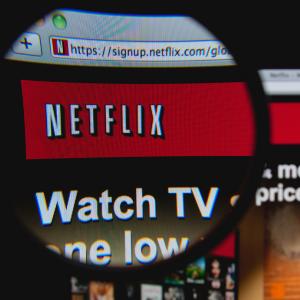
Image via Gil C/Shutterstock
This is a major policy for a leading company, given that our country remains one of three countries in the world with no guaranteed paid parental leave. In fact, only 12 percent of Americans — those at Sojourners included — have access to paid parental leave (this drops to 5 percent for low-wage workers), and only four states — California, Massachusettes, New Jersey, and Rhode Island — currently have publicly-funded parental leave.
With its announcement, Netflix joins other tech companies, including YouTube, Yahoo, Reddit, and Twitter, as one of the most generous workplaces for parental leave. As TechCrunch notes, this responsive shift in part reflects changing priorities of Silicon Valley's talent, as the workforce shifts from wanting perks that "make work fun" (unlimited soft drinks, ping-pong tables, bean bag chairs) to wanting real work-life balance.
"The talent is growing up," says TechCrunch. Netflix is listening ... it remains to be seen whether national policymakers will.
Report: Lead #BlackLivesMatter Organizers Singled Out As 'Threat Actors' By Cybersecurity Firm
Government and Law Enforcement Officials Were Named for 'Protection'
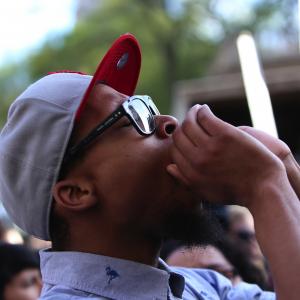
Image via a katz/Shutterstock
A "crisis management" report shows that a Baltimore cybersecurity startup, ZeroFox, singled out members of the Black Lives Matter movement as "threat actors" during the protests and rioting around Freddie Gray's death in April, Mother Jones reports. The report highlights two Black Lives Matter organizers, DeRay McKesson and Johnetta Elzie, terming their threat level "high" and "physical," urging "continuous monitoring." It also identifies Baltimore officials and law enforcement agencies for "asset protection."
This follows on reports in late July that the Department of Homeland Security has been comprehensively monitoring Black Lives Matter activities in Ferguson, Mo., Baltimore, Md., Washington, D.C., and New York, N.Y since August 2014.
Sojo Sessions
Lowland Hum
Lowland Hum, comprised of married folk duo Daniel and Lauren Goans, have emerged with their eponymous second album a stronger, more versatile, and possibly even more intimate musical pairing than their first album, Native Air. It's this sudden sense of fragility and uncertainty in the face of the next layer of intimacy — and the corresponding joy when the leap taken finds solid ground — that Lowland Hum brought to Sojourners' Summit.
Watch the full Sojo Session here.
Rob Bell Talks Spirituality, Science, Oprah, and 'Pure Joy'
Rob Bell is on the move. In his “Everything is Spiritual” tour, which makes its way through the Washington, D.C., metro this evening, he is focusing on the connections between science and spirituality and how we can sit within the reality of our ever-expanding universe. Sojourners’ Catherine Woodiwiss spoke with the author and speaker to talk spirituality, the “nones,” Oprah, science, and surfing.
This interview has been edited for length and clarity.
'Trainwreck:' Amy Schumer Goes Longform
Curiously inconsistent. Totally enjoyable.
Amy Schumer and Judd Apatow’s Trainwreck promises rude, clever fun. Does it deliver? Abby Olcese and Catherine Woodiwiss discuss. (Light spoilers in parentheses.)
Catherine Woodiwiss: Okay, so I was a little concerned that Trainwreck was just going to be an exact inversion of "the guy’s a mess, the girl’s uptight" Judd Apatow comedy set-up. And it’s not just that! But I am a little surprised how conventional it felt ultimately.
Abby Olcese: I enjoyed it. I enjoyed her getting to be a mess. Right up until the point where she breaks up with Jon Cena — which is an absurd sentence that I just said — up until that point, she’s really awful. But(Spoiler) when her dad died, and when Aaron visited for the first time and took care of him, those were very conventional story beats (End spoiler). I’m curious about that.
In her show, the Aaron Sorkin parody, the 12 Angry Men parody are really pointed, specific things and she’s using those tropes for a reason. So I wondered if that had a larger purpose in the long form. And I’m not entirely sure it did.
Woodiwiss: Amy’s style of comedy has always been a blend of pointed commentary and "do what the guys do but be a girl doing it." I thought it very subtle and clever that any on-screen nudity was male. And really, there was a significant range of interpretation of masculinity in the film — the impossibly muscular bro who was gay, the intern who was possibly transgender. Bill Hader, who is not the stereotypical leading man. And LeBron James, who is basically the Platonic form of male athlete.
But the women didn’t have the same diversity — they were all pretty stock characters.
And her dig at cheerleaders (derisively comparing them to strippers) was odd. Was that a subtle skewering of the "girl gets boyfriend and gets protective and starts denigrating other women" trope? Maybe, but it just sounded like a cheap shot.
Olcese: The last thing I wrote down was, was that really just all over the place?
Woodiwiss: Say more.
War, Peace, and the Stories We Tell
Army vet and peace educator Paul K. Chappell aims to change our cultural narratives about violence.
“THE IDEA THAT peace is inevitable is as dangerous as the idea that war is inevitable,” says author and peace educator Paul K. Chappell. We’ve been discussing peace in practice for the better part of an hour, and he’s warming to the theme. He puts forward an unlikely premise—that violence is not intrinsic to human nature.
Paul Chappell isn’t what you would expect in a peace champion. A graduate of West Point and a member of the U.S. military for seven years, including as a captain in Iraq, he first honed his fighting skills on school playgrounds, getting expelled for fighting in grade school and suspended in high school. He was bullied as a child for his skin color (his father, a veteran of the Korean and Vietnam Wars, was biracial—black and white—and his mother is Korean). Because of his father’s war trauma, Chappell describes his childhood as “unpredictably violent.”
It’s hard now to imagine this former troubled youth, both perpetrator and victim of violence, as the articulate Chappell thoughtfully winds his way through classical theory and national myth. But Chappell’s learned taste for creed over instinct is clear. The army provided the closest thing to family that a young Chappell had ever encountered, he tells me, but despite that deep affection—or perhaps because of it—he began paying attention to the lasting effects of war and trauma on his brothers-and-sisters-in-arms.
Land of the Free, Home of the Weird
The Wild West as we imagine it is a bit of a sham, of course — constructed in part by people living there even at the time, who would stage train robberies and trick out saloons to thrill adventure-seeking, money-dropping East Coasters.
It’s a cartoonized myth, the kind perfectly suited to the sort of theme park that America today leads the world in delivering. This could cause even greater skepticism about our present surroundings — but really, is there great romantic difference between a bygone West of restaurants and wagon paraphernalia and a tribute West of all that plus a water park? We agree that this is the story we’re telling and we go with it; to delight ourselves and each other, to give ourselves an origin story, a reason for what it’s all for.
I should mention it is Memorial Day weekend. National holidays share a similarly constructed myth in our collective nostalgia, I think, and Memorial Day has come further than most from its original purpose.
'Where's God When...?' 3 Authors Launch Tour to Talk Loss, Doubt, and Healing
What’s it like to share your stories of loss to a room of hundreds? Wm. Paul Young (author of The Shack), Reba Riley (Post-Traumatic Church Syndrome), and Christian Piatt (PostChristian) are about to find out — and help others do the same. The three bestselling authors are launching a two-stop tour — "Where's God When..." — in Seattle and Portland on May 16 & 17, to help others hear, and share, their own stories of grief, heartbreak, and healing.
Sojourners sat down with the authors last week to talk loss, return to faith, and what it’s like to coordinate a tour focused on hard questions about God. Interview edited for length and clarity.
Local Efforts to Rebuild Nepal — And How You Can Help
Lokesh Todi, born and raised in Kathmandu, moved home to Nepal nine months ago to be an entrepreneur. When the 7.8-magnitude earthquake hit last Saturday, he and a cousin started a crowdfunding campaign on Indiegogo to help connect concerned givers with local NGOs.
“We thought we could get some supplies to local groups. Our goal was to get $20,000 — that’s a lot of money in Nepal," said Todi, a recent graduate of Yale University's M.B.A program.
Thanks to their concerned networks, including thousands of shares from Todi’s Facebook page, the campaign has now raised $120,150 — more than six times the amount they expected.
“I’m really hoping to make sure that all this money goes to right channels, and make sure that every dollar is spent properly and wisely. My goal is to help the community build back stronger and a little bit more prepared,” said Todi.
Who's Watching? Brave New Technology, Same Old Fears
In 1990, my father and pregnant mother packed up their life in suburban Illinois, bundled their four young children (including me) onto a plane, and landed in Romania to teach on a grant at the University of Bucharest.
The country was in the throes of revolution following the execution of ousted dictator Nicolae Ceaușescu, and the transfer of power was by no means tidy or complete. The Securitate — one of the most brutal secret police forces in the world — proved difficult to shut down. All our neighbors operated under the assumption that their every move continued to be watched (one friend had taken apart his typewriter by hand and hid it so he could answer honestly that he did not keep a typewriter in the house). Being American, my parents were told to expect our apartment to be bugged.
Freedom had come, but the systems of omnipresent control proved psychologically hard to shake.
The specter of surveillance is an insidious tool. In the 1790s, British philosoper Jeremy Bentham developed a centralized prison model called the panopticon, in which every occupant is visible to a single guard. Most models, since adapted by prisons and schools around the world, leave open the possibility that there is no supervisor watching after all. Whether there is isn't the point — the mere promise of one is enough to coerce significant behavior change. Being constantly observable is the trap.
These days, Americans don’t need a formative year spent in post-soviet Romania to feel uneasy about omnipresent surveillance. Edward Snowden’s revelations of massive secret surveillance programs operating under the NSA, with enormous access to private data from citizens not suspected of terrorism or criminal wrongdoing, rocked our understandings of data privacy and civil liberty. Now, as then, it’s reasonable to worry that we’re being watched.
Songs of Ourselves: Grief, Hope, and Sufjan Stevens
Sufjan Stevens’ newest album, Carrie & Lowell (out now), is a heartbreaking meditation on personal grief. It’s also joyful, baffling, and delicately mundane.
In the spirit of a listening party, a few of us sat down to play through the album, sharing liner notes and meditations on the songs that grabbed each of us. Conclusion: it's really, really good. Stream Carrie & Lowell here, and listen along with us below.
“Death With Dignity” — Tripp Hudgins, ethnomusicologist, Sojourners contributor, blogger at Anglobaptist
Tripp: I love the first song of an album. I think of it as the introduction to a possible new friend. “Where The Streets Have No Name” on U2’s Joshua Tree or “Signs of Life” on Pink Floyd’s Momentary Lapse of Reason, that first track can be the thesis statement to a sonic essay.
So, when I get a new album — even in this day of digital albums or collections of singles — a first track can make or break an album for me. I sat down and listened attentively to “Death With Dignity.” It does not disappoint. With it Stevens introduces the subject of the album — his grief around troubled relationship with his mother and her death — as well as the sonic palate he will use throughout the album.
Simple guitar work, layered voicing, and a little synth, the album is musically sparse. The tempo reminds me of movies from the nineteen sixties or seventies where the action takes place over a long road trip.
Catherine Woodiwiss: I was thinking road trip, too. There’s real motion musically, which, given a claustrophobic theme and circular lyrics, is a thankful point of release. It’s a generous act, or maybe an avoidant one — he could have made us sit tight and watch, and he doesn’t quite do it.
Julie Polter: This isn’t a road movie, but the reference to that era of films just made me think of Cat Stevens’ soundtrack for Harold and Maude, especially “Trouble.” (This album is one-by-one bringing back to me other gentle songs of death and duress and all the songs I listen to when I want to cry).




